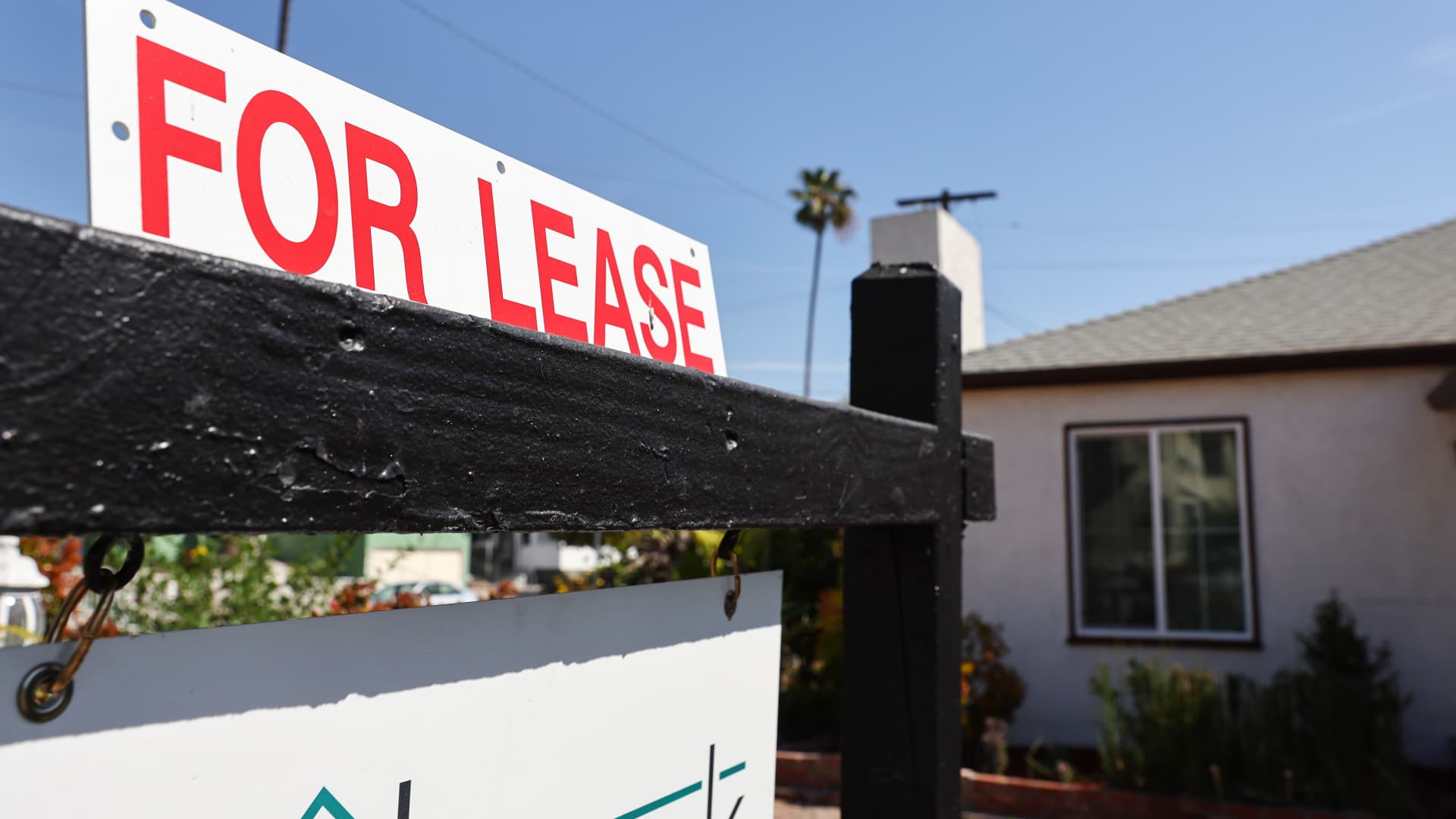
A house is available for rent on March 15, 2022 in Los Angeles, California.
Mario Tama | Getty Images
Apartment rents have increased slightly for the past few months, as the seasonally stronger spring activity kicks in. But in March they were only up 2.6% from March of 2022.
That’s the smallest annual gain since April 2021, according to Apartment List. And, after last year’s record-setting pace, rent growth is now slightly below the pre-pandemic average of 2.8%. Some markets, such as San Francisco, are falling at a bigger rate.
Vacancies are also starting to rise back to normal levels, as more supply comes on the market. They stand at 6.6%, up from 6.4% in February.
Over 917,000 apartment units were under construction across the U.S. at the end of last year, which will increase the nation’s existing apartment base by 4.9%, according to RealPage Market Analytics. This is the highest number of units under construction since the early 1970s.
“Even if demand continues to strengthen, a robust supply of new inventory hitting the market this year should keep prices in check. It looks like 2023 is shaping to be a year of modest positive rent growth,” researchers at Apartment List noted in the report.
Markets seeing the biggest rent jumps compared with a year ago were mostly in the Midwest, with Chicago, Indianapolis, Cincinnati and Louisville all up 6%. Boston rents rounded out the top 5, also up 6%.
Several major cities are seeing rents decline. Phoenix and Las Vegas rents were down 3% year over year, and San Francisco dropped 1%.
Rents for single-family homes are also easing, but are still far hotter than apartment rents. Single-family rent growth was 5.7% year over year in January, the lowest rate of appreciation since spring 2021, according to CoreLogic.
Of the 20 major markets tracked by CoreLogic, Orlando, Florida, had the highest rent gain from a year ago at 8.9%, but that is down from its latest peak of 25% annual growth in April 2022. Miami was seeing 39% annual growth last January, but that’s down to about 7% this year.
“While rent growth is slowing at all tracked price tiers, declines for the lowest-cost rentals are not as significant, which raises affordability concerns. Annual rent growth for lower-tier properties was about three times the pre-pandemic rate, while gains in the highest tier were nearly one-and-a-half times during the same period,” Molly Boesel, principal economist at CoreLogic.
